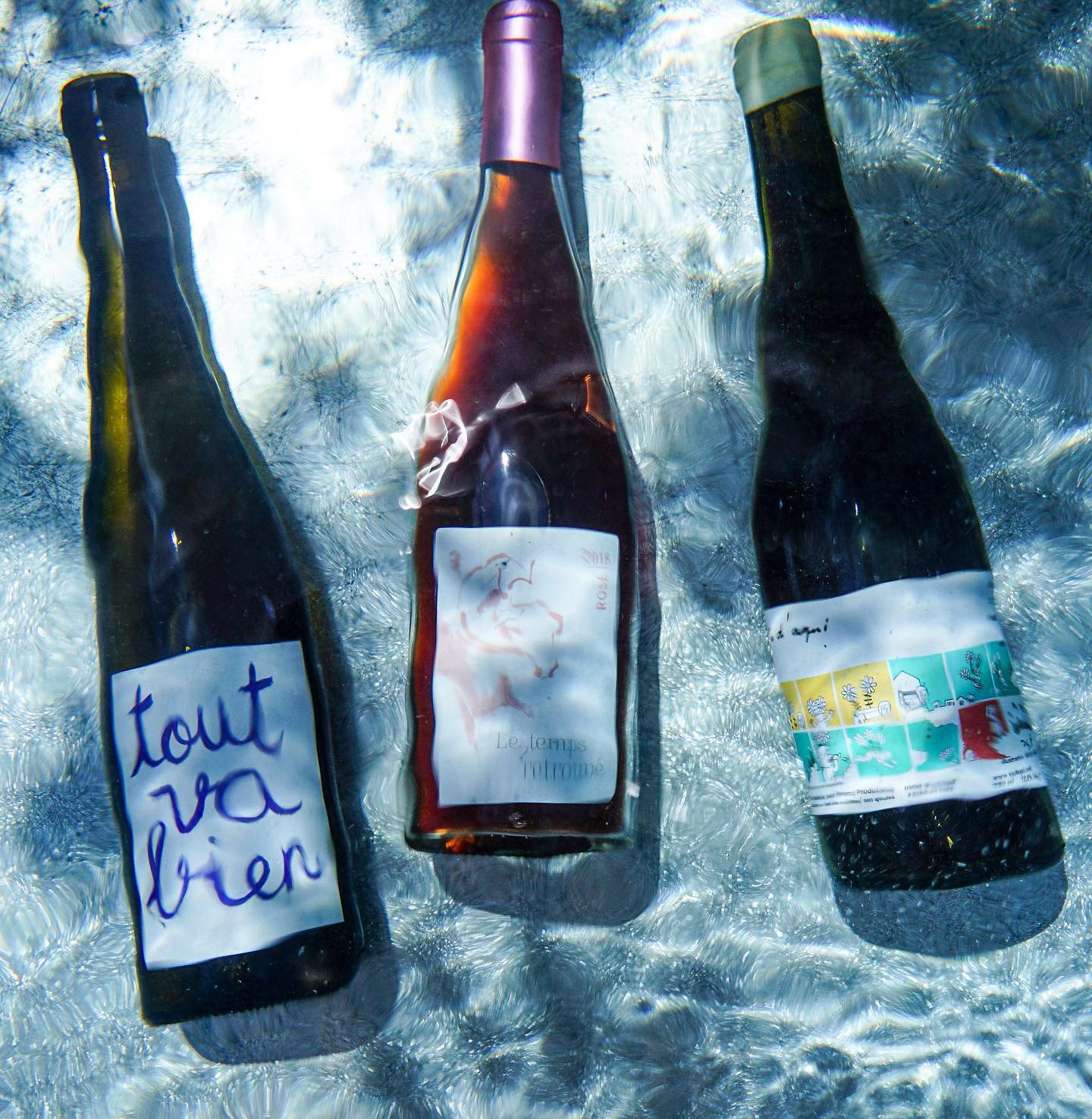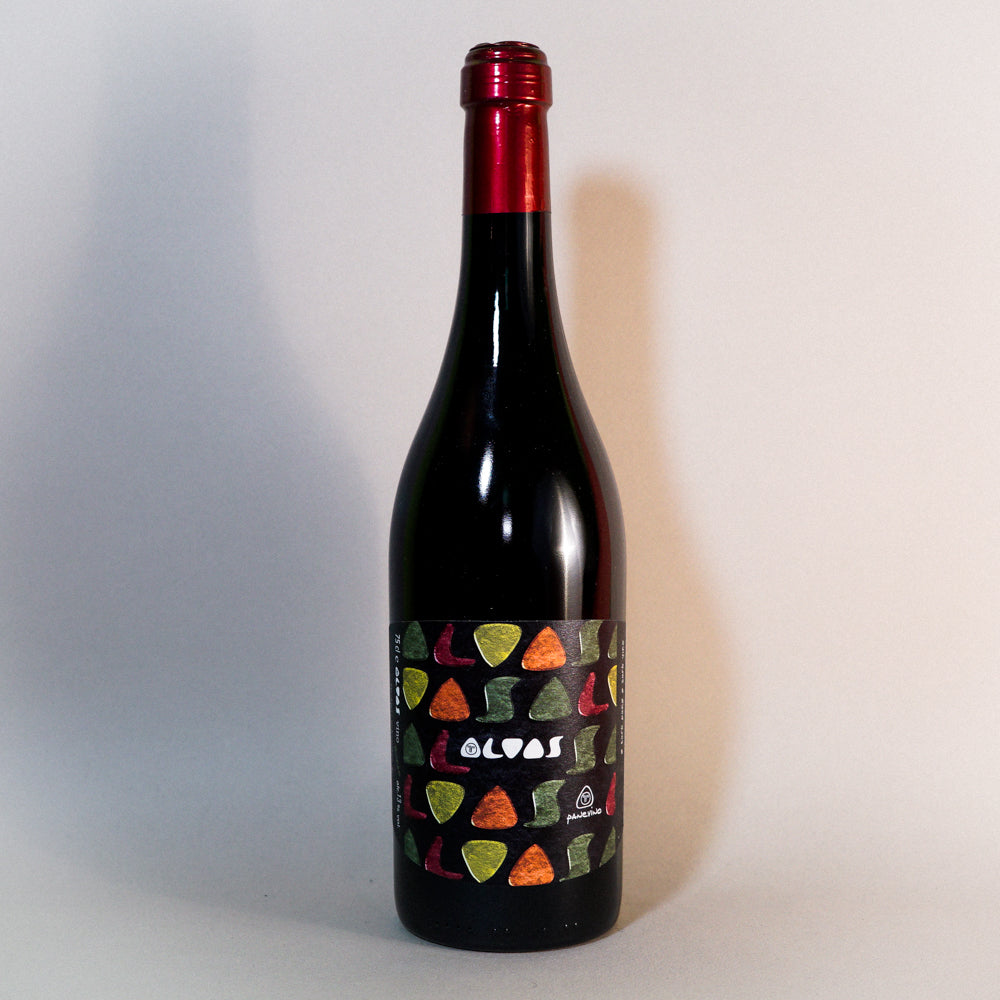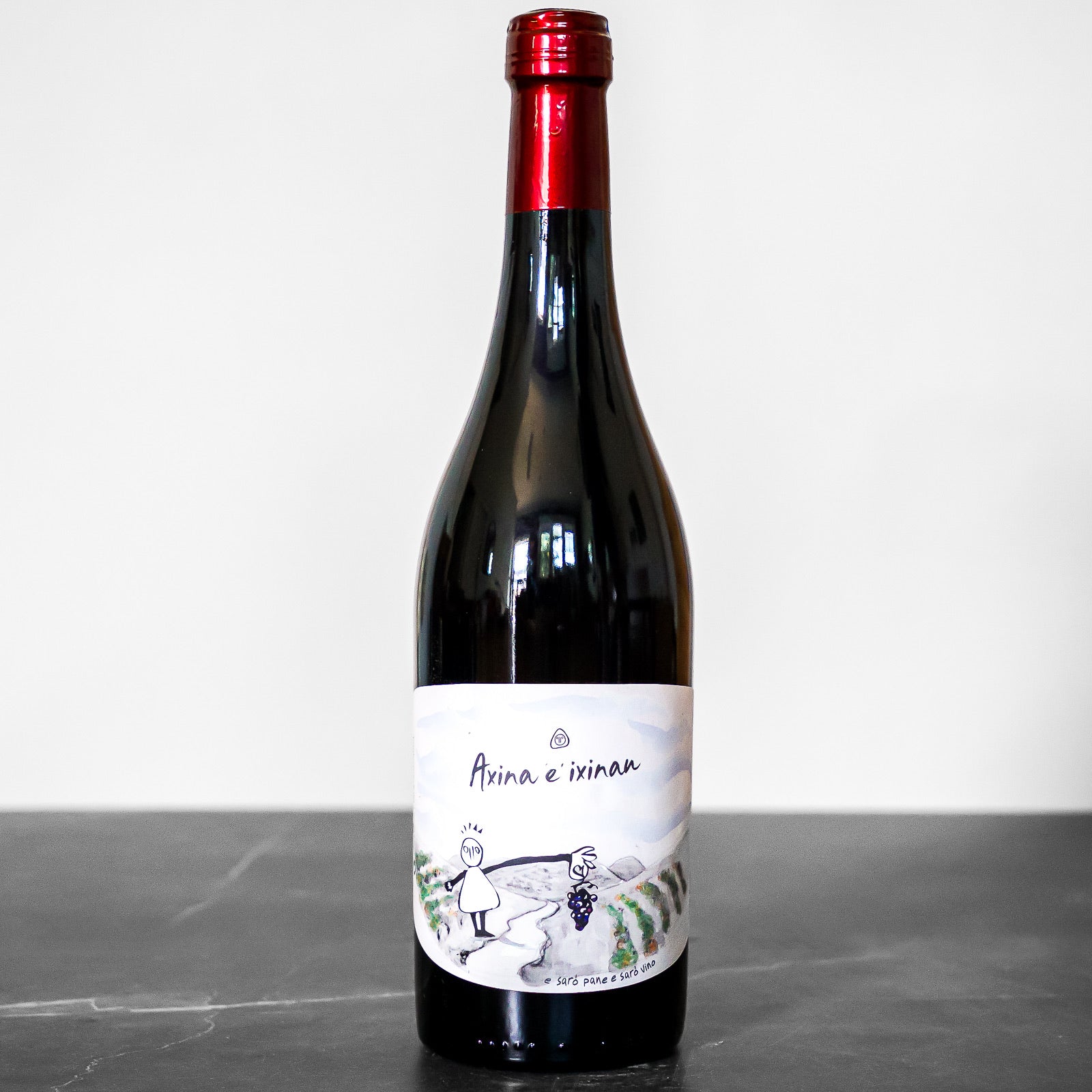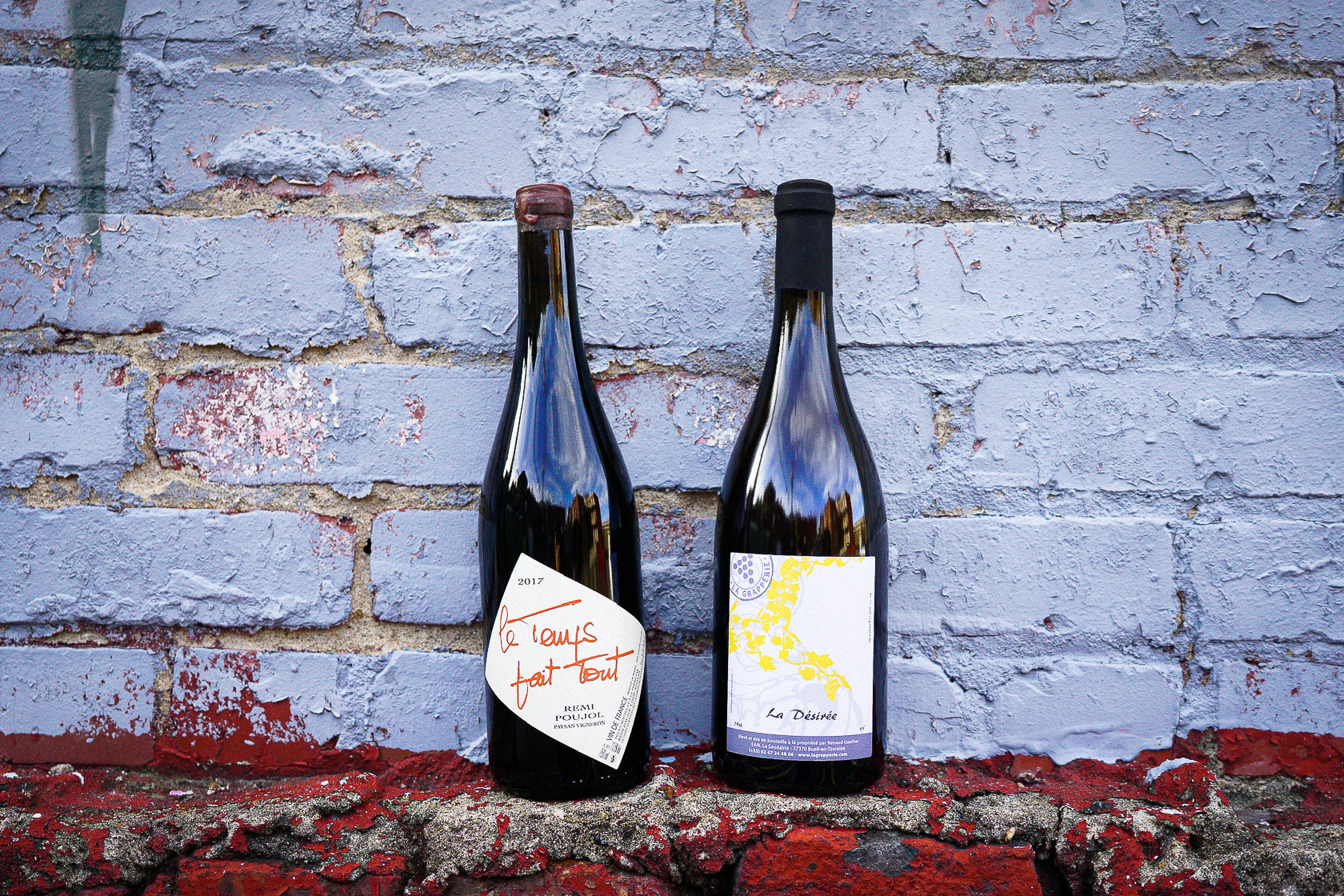25-year-old vines on limestone. The grapes are hand-harvested and macerated for about two weeks. Gently pressed and then aged on lees in neutral French oak barrels, 2–3 years depending on the vintage. Bottled unfined and unfiltered, with a tiny addition of SO2 (10ppm max).
Max Dexheimer & Marika Tikas
Max Dexheimer & his partner Marika Tikas are making beautifully singular wines that transport the soul of the Reinhessen into your glass. Max is a 5th generation winemaker – the winery in Saulheim was founded by his great-grandfather in 1896. Supported by his father, Max is gradually overtaking the family vineyards and changing the direction into completely natural winemaking (while his father is getting ideas from Max as well, such as making pet-nats). Another great support in Max’s life is his partner Marika – an Estonian sommelier who came to work harvest years ago, fell in love, and never left.
Max is part of a close, mutually-inspired circle of friends including other exciting young German winemakers Andi Weigand, Andi Mann and Martin Worner aka Marto, all classmates from the famous Geisenheim University.
Pinot Noir and its different facets and clones are definitely one of Max’s centers of interest–and it’s no wonder. His native Rheinhessen area boasts limestone terroirs and a favorable continental climate; thanks to his family dexterity and long history, Max also enjoys many older vineyards on the coveted white slopes.
These older plots were the first that Max started to progressively take over and care for after his studies in Geisenheim, and he remains a huge old-vine fan despite its drawbacks. “My dad wanted to rip one site up the other day, as there were more than 1,000 plants missing, but I said, no, it’s so amazing, we can’t take down a 40-year-old vineyard. Of course we have lower yields, but we started to progressively re-plant them. Old vineyards give you a different experience that makes it absolutely worth adjusting to and keeping it alive–if I want a young-style wine, we do that with our younger vineyards,” Max explains his way of thinking.
Overall, Dexheimer Sr. is very supportive of the new direction, transferring more and more vineyards to the respectful care of his son. The fact that he’s had his own bottling line for a long time is a great help, too. “It was really important for my dad to have the process fully in his own hands, and I benefited from it tremendously as well, as I could really get my first experience with unfiltered wines without having to discuss doing it with a conventional mobile bottling unit, which can sometimes be a challenge,” Max recalls.
The cellar is progressively becoming more and more Max’s space too – the big old Stückfass barrels are being renovated and filled with more and more pure juice, the best of them guarded by a wooden cat statue. A sort of cross between a cellar totem and Best In Show trophy, this little “Cheshire Cat of Saulheim” is always placed on top of the best barrel from the last vintage. Judging from what we saw and tasted, she’s going to have a tougher and tougher job deciding where to nap in this promising Dexheimer operation.










